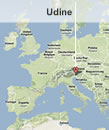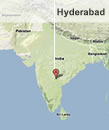European Parliament gets active in the EU-India FTA talks
The European Parliament's (EP) International Trade Committee is to visit India shortly to discuss the progress of ongoing negotiations between the European Union and India on a free trade agreement (FTA).
"I as rapporteur am currently finalising my report and its due to come before the international trade committee visit to India", MEP Sajjad Karim of the United Kingdom, who heads the delegation on the EU-India FTA, told EuAsiaNews in Brussels.
"We are about to visit Delhi in about 10 days time. It is going for the first time as a trade delegation. It's part of the negotiations which are going to take place during that week also which the European Commission is conducting", said the British Member of the European Parliament. Earlier, Karim together with the Brusselsbased Europe India Chamber of Commerce, organised a workshop on Tapping Business Opportunities arising from the EU-India FTA. "It is very important that we have this sort of interaction here so that we go with the political impetus that we need", said Karim, who is of Pakistani origin.
"I am not willing to put a deadline on (FTA) negotiations", he stressed. In his welcome address to the workshop, Karim said the EU-India FTA will be a "win-win situation", for both sides. He said five rounds have been held since negotiations began in June 2007. Karim voiced concern over "protectionist voices" coming out from the US following the financial crisis and said he hoped that both India and the EU will remain committed to trade liberalisation policies. Pascal Kerneis, managing director, European Services Forum, said services is the key of success in the FTA.
The Brussels-based ESF is a network of representatives from the European services sector. Kerneis said he hoped that the EUIndia FTA would be concluded by 2010, explaining that in 2009 both India and the European Parliament would be busy with elections. He blamed the "burdensome bureaucracy" as a major obstacle to investments in India and called for swifter procedures to get licenses and permits for European investors. Dirk Vantyghem, Director of International Affairs for Eurochambers , lamented that despite the growing trade figures between the EU and India, the EU's market share in India has dropped from 33 percent to 20 percent.
"It is basically difficult for European business to enter India", said Vantyghem citing tariff barriers, poor bureaucracy and corruption as some of the reasons. "We are not investing in India as we should", he said. Between 2000 and 2007, EUIndia trade in goods more than doubled in values. EU exports rose from 13.7 billion Euro to 29.5 billion, while imports from India increased from 12.8 billion to 26.3 billion. Created in 1958, the Brussels-based Eurochambers is the European Association of Chambers of Commerce and Industry and forms one of the key pillars of business representation to the European institutions.
It voices the interests of over 19 million member enterprises in 45 European countries through a network of 2000 regional and local chambers. Eurochambers signed an agreement in September with the European Commission Delegation in New Delhi to establish the first "European Business and Technology Centre" (EBTC) in India. The EBTC is to become the reference point for promoting European business and research in India. EU companies will be able to contact the EBTC to receive information and support for their activities in that country, with focus on the environmental sector, energy, biotech and transport.
Sangeeta Khorana, School of Management and Business, Aberystwyth University, UK, stressed that the non-tariff barriers' issue must be tackled before the FTA is concluded. If nontariff barriers is not addressed the benefit of the EU-India FTA will be diluted, she said. Khorana also spoke of restrictions, such as excessive document requirements on EU exporters to India and on Indian exporters who face inconsistent requirements in the 27-member European bloc. M. S. Chandramouli, Managing Director, Surya International and Member of the Board of the Europe-India Chamber of Commerce, noted that EU-India FTA negotiations in the services sector is said to have made substantial progress. He said that Indian exports to EU in the services sector is almost 50 percent in software and 30 percent in travel and transport.
Source: Neurope.eu








